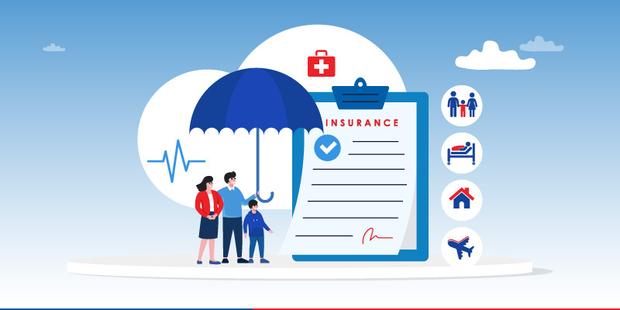
Bancassurance in the Context of Bangladesh
Bancassurance is a financial service offered by banks that combines banking and
insurance services. In the last five decades banks in Austria, France, Germany, Italy,
Portugal, Spain, and UK attained remarkable success by adopting this business model.
These countries collectively own 40%-50% of the global Bancassurance market share. In
the recent years East Asia and South America are the regions where bancassurance is
gaining popularity.
Under this framework, banks usually provide two types of assurance. These include life
insurance products and non-life Insurance Products. The first category covers whole-
life, term-life, living benefit and several other plans. Credit, marine, property, travel and
various other insurances are typically included in non-life insurance.
The concept of bancassurance is relatively new in Bangladesh. In May 2022 the Central
Bank finalized guidelines for local banks to provide the service. This is an excellent
initiative by the government. It will provide new business opportunities to the stagnant
local insurance industry and boost revenue of the banks from the partnership.
One of the main advantages of bancassurance in Bangladesh is convenience. Customers
can purchase insurance products while conducting their regular banking activities,
eliminating the need to visit an insurance company. This saves time and makes the
process of buying insurance much easier and quicker. Additionally, bancassurance also
allows banks to offer insurance products to their customers who may not have access to
insurance services otherwise.
Another advantage of bancassurance in Bangladesh is the potential for increased
financial literacy. Banks can educate their customers about insurance products and their
benefits, helping to raise awareness and understanding of insurance among the general
population. This is particularly important because insurance literacy is relatively low in
the country.
There are, however, some challenges associated with bancassurance in Bangladesh. One
of the main challenges is the lack of regulation and oversight in the sector. This can
result in mis-sell of insurance products and a lack of consumer protection. Furthermore,
some customers may not fully understand the terms and conditions of the insurance
products they are purchasing, leading to unnecessary setbacks in the future.
For a successful adaptation of the bancassurance business model, the critical first step
for local banks and insurance providers is to change their mindset. They must replace
traditional business practices by data and technology driven approaches. Banks should
take proactive measure to generate new data through feasibility studies and collect
public opinion through survey or poll using various social media or news channels. This
information will be critical to probe the readiness of the society and ultimately to
develop better policies and optimized pricing. Banks should also leverage existing
customer database to generate insights of new business opportunities without
compromising security and privacy of customer data. Insurance companies must utilize
advanced technology-based solutions to identify prospective customers and boost the
productivity of agents and representatives. An insurance carrier can work with a bank to
leverage the new data. They can map prospects’ financial standing to create personalized
premium pricing which will be beneficial for the new customers.
Bancassurance has the prospect to add values to the financial sector in the country.
However, it is important that the market is properly regulated and that customers are
provided with adequate information and financial protection. With the right approach,
bancassurance is likely to play a key role in increasing financial literacy and providing
insurance services to people who may not have access to them otherwise.
Dr. Nurur Rahman is the Founder and CEO of Somikoron, an AI-based insurtech
startup in Bangladesh. Somikoron is paving the way for Bangladesh insurance, finance,
and retails industries to be compatible with the Fourth Industrial Revolution.
